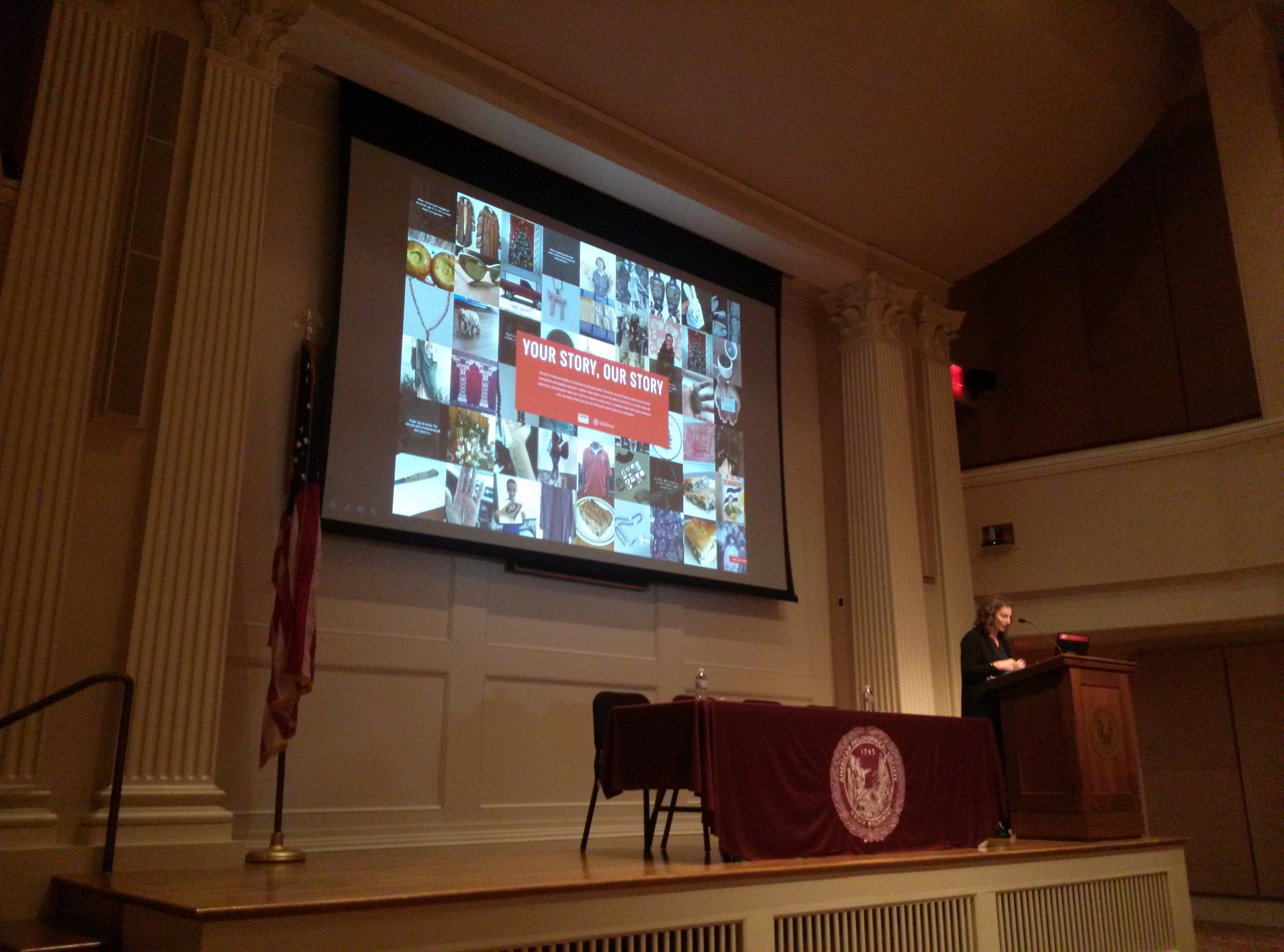
The 7th Annual Public History Community Forum was held Wednesday, March 8, 2017, in Franklin Hall of the American Philosophical Society, Philadelphia. Sponsored by the Mid-Atlantic Regional Center for the Humanities, the American Philosophical Society, Temple University, and the Myer & Rosaline Feinstein Center for American Jewish History, the annual event filled to its registration capacity of 100 people and drew students and public history professionals from throughout the Mid-Atlantic region ready to discuss the theme, “‘This is Why We Fight’: Public History for the Public Good.”
Organizers “wanted to have a theme that had relevance to current events and highlighted the work that’s being done in Philadelphia and the surrounding area. Our main focuses were the various areas of social justice, so we selected speakers who are doing relevant work in those areas,” said Rachel Craft, a graduate student in public history at Rutgers University-Camden. Craft and co-organizers Cynthia Heider and Chelsea Reed, both graduate students at Temple University’s Center for Public History, built the event’s theme around the idea that “public history shouldn’t just serve the public, but fight for them,” Reed said during introductory remarks. She continued, “We want to enter a field that promotes diversity, sensitivity, and inclusivity.”


Attendees spent the morning in concurrent workshops sessions facilitated by public history professionals at institutions such as Eastern State Penitentiary in Philadelphia and The Contemporary in Baltimore, and the afternoon in two plenary sessions: a keynote address by Annie Polland, Vice President of Programs and Education at the Lower East Side Tenement Museum in New York, and a panel on public history for public schools, featuring Ismael Jimenez of the Philadelphia Black History Collaborative, two of his eleventh-grade students from local public schools, and Monica Montgomery, Founding Director and Chief Curator of the Museum of Impact and Museum Hue.

“Part of our fight is contextualizing stories and making sure people are connected to these stories,” said Polland. Her keynote addressed how stories from immigrants’ histories allow us to expand our knowledge, counter myths, and contextualize some of the more polarizing issues, such as assimilation and learning the English language. Polland said that by weaving together the stories of immigrants from different countries, Tenement Museum curators are able to show “the intricate fabric of the neighborhood” and of the garment industry. At least one member of every family living in the former tenement building had at least one member working in the garment industry at some point. Additionally, the museum expands its reach through Your Story Our Story, an initiative that crowdsources object stories related to immigration.
Struck by juxtaposition of young women discussing disconnect with history while sitting beneath portraits of TJ, BF, and GW. #PubComm17 pic.twitter.com/QVqM0M9YOI
— Janneken Smucker (@JannekenSmucker) March 8, 2017
The closing panel, “Using the Past to Orient the Future: Public History for Philly Schools,” asked how social justice activism can be brought into public history spaces. Montgomery suggested museums and historic sites abandon thinking of themselves as neutral and encouraged institutions to use their assets of knowledge and physical space to assist social justice organizations that are already engaged in activist work. Reaching out to such organizations “lets the people we serve know, ‘We’re with you. We’re here for you,'” said Montgomery. Students on the panel noted that at museums, they connected best to interactive exhibits and enthusiastic interpreters/tour guides that engaged them emotionally and allowed them to form their own opinions about complex issues. They also acknowledged that access to museums is a struggle for many local students and closed with this question to the audience: As a moral value, how can you pull students into museums and libraries, and how can you pull the latter into the classroom?
This year’s Public History Community Forum pulled in many people through the digital space. For a review of the day from several different attendees’ perspectives, search for #PubComm17 on Twitter, or see this Storify story (also embedded below) by conference participant @theodeomutts:

